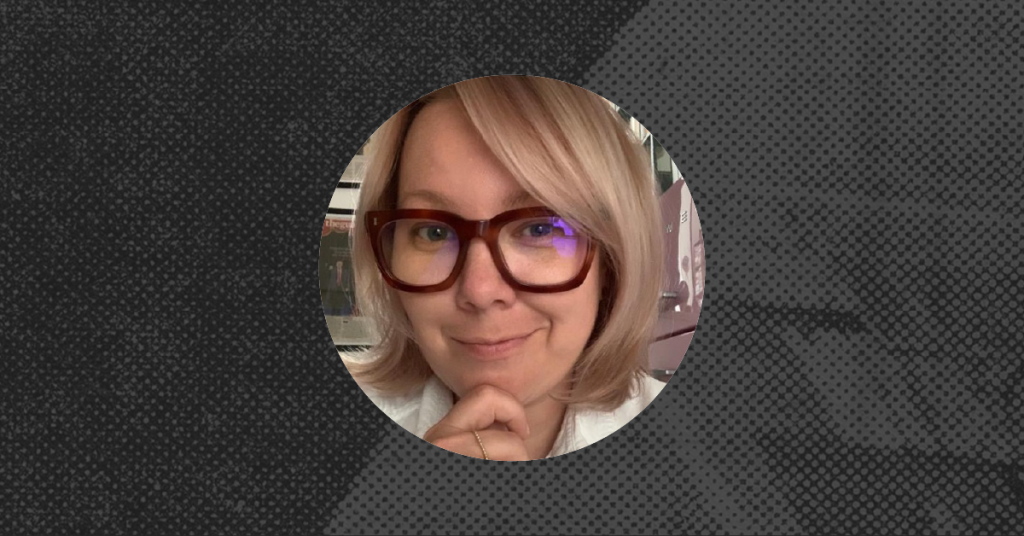
From marketing to meaningful change: a deep dive into business transformation with Marta Topornicka.
Published on 27 June, 2025 | Author: Digitalzone
At The B2B Collective London, Marta Topornicka (Director of Transformation at Bright Horizons UK) shared an inspiring story of evolution—from being a marketing leader to driving enterprise-wide change.
What sets Marta apart is how she moved far beyond the traditional marketing remit. At Bright Horizons, a global provider of childcare and work-family solutions, she didn’t just lead campaigns—she reshaped the company’s data systems, redefined the employee experience, and played a hands-on role in product innovation. All of this, while keeping a laser focus on the end-user.
Her journey reframes marketing not as a support function, but as a strategic engine powering growth, transformation, and business impact.
Bright Horizons: The hidden powerhouse of work-life solutions.
While Bright Horizons is globally recognized for its network of over 300 UK nurseries (and thousands worldwide), its B2B division—Work & Family Solutions—operates as a billion-pound revenue engine, though less visible to the general public.
The corporate lifeline: how Bright Horizons supports modern workforces.
Partnering with Fortune 500 companies across tech, finance, pharmaceuticals, and legal sectors, Bright Horizons delivers mission-critical services that enable employees to remain productive while managing family responsibilities:
- Emergency Childcare & Nannies (Last-minute care when schools close or children fall ill)
- Elder Care Coordination (support for employees managing aging parents)
- Teen & Adolescent Support (tutoring, mentoring, and crisis assistance)
- Concierge Services (including pet care—because even furry family members need backup)
These aren’t just perks—they’re strategic workforce solutions. When a Goldman Sachs banker must fly to Frankfurt for a client meeting, or a Pfizer researcher pulls a late-night lab shift, Bright Horizons ensures their personal lives don’t unravel.
The marketing leader who became a transformation architect.
Marta’s 20-year marketing career spanned industries with long, complex sales cycles—education, healthcare, and professional services. This background ingrained in her a data-obsessed, customer-centric approach that later defined her transformation philosophy.
But her evolution didn’t happen overnight. It unfolded in distinct phases—each shaped by a growing desire to move beyond campaigns and start reshaping the business itself. To understand how she made that leap from marketing to meaningful change, it helps to look at the key turning points along the way.
Phase 1: marketing with a revenue-first mindset.
As Director of Marketing at Bright Horizons, Marta refused to be confined to “lead gen.” Instead, she:
- Bridged marketing and sales, ensuring campaigns aligned with real conversion bottlenecks.
- Mapped emotional and logistical customer journeys—e.g., a parent’s stress when searching for emergency care.
- Pioneered “content experience” (not just content marketing), tailoring messaging for HR chiefs (ROI-focused) vs. wellbeing heads (employee sentiment-focused).
Phase 2: the tech stack revolution.
Recognizing that garbage data = garbage insights, Marta led a foundational overhaul:
- Integrated siloed systems (nursery management software, CRM, corporate portals).
- Built a unified data lake—connecting parent behavior, corporate usage patterns, and employee feedback.
- Enabled predictive analytics (e.g., forecasting seasonal demand spikes for backup care).
Phase 3: from marketing to enterprise transformation.
The results were too impactful to ignore. The CEO challenged her: “Can we apply this rigor to HR? Finance? Operations?”
Her transformation playbook:
- Process mining in HR: she applied customer journey mapping to candidate experience, cutting time-to-hire by 30%.
- AI for nursery staff: she deployed behavioral analytics tools to help teachers spot developmental patterns (e.g., speech delays) earlier.
- Commercial intelligence: she packaged employee benefit usage data as a competitive insights tool for corporate clients.
The AI imperative: augmenting humanity in a regulated world.
Marta’s AI strategy rejects hype for precision and ethics:
Tactical AI wins.
- “Tiny Agents” philosophy: started with single-process bots (e.g., answering 15 common parent queries) before scaling.
- Predictive care matching: AI suggests ideal nannies based on a child’s allergies, personality, and past caregiver ratings.
- Regulatory safeguards: all models trained on fully anonymized data, with human oversight for sensitive decisions.
The human edge.
At Bright Horizons UK, AI wasn’t just a tool—it was an enabler. By automating paperwork, it freed up nursery staff to focus on what matters most: meaningful interactions with children. One standout example is their “5-Minute Rule”: whenever a parent requests emergency care, they receive a human call within five minutes. AI manages the logistics behind the scenes, ensuring staff have the time and headspace to respond with empathy.
As Marta put it, “Our differentiator isn’t tech—it’s trust. AI must deepen that, not dilute it.”
The future of marketing: revenue generation as a core discipline.
This is Marta’s vision for marketing’s evolution:
1. Own the P&L.
- Marketing should operate as a profit center—not just a cost line.
- Her team develops retention algorithms that reduce corporate client churn by 22%, directly boosting EBITDA.
2. Act as the enterprise’s “customer whisperer.”
- Marketing’s tools and mindset can elevate other business functions.
- In HR, her team applies lead nurturing tactics to improve candidate pipelines.
- In product, they use segmentation models to personalize service tiers based on behavior and value.
3. Lead with ethical data.
- As Marta puts it, “clean data is the new oil.”
- She establishes data governance councils to ensure compliance across markets and treat data with integrity.
- Transparency becomes a competitive edge—corporate clients receive auditable AI decision trails that support regulatory trust.
How marketers can start transforming.
After two decades in marketing—across sectors where trust and long sales cycles were the norm—Marta Topornicka didn’t just switch careers; she redefined what marketing leadership could evolve into. For those looking to follow a similar path, her journey offers more than inspiration—it’s a roadmap.
Here’s how she bridged the gap between marketing and transformation, and what it means for others ready to make that leap.
- Expand your scope: volunteer for cross-functional projects (e.g., HR tech implementations), and learn basic SQL and process mapping to speak engineers’ language.
- Find the hidden data goldmine: audit underutilized datasets (e.g., customer service logs for product insights).
- Pilot before you scale: run a 3-month AI micro-project (e.g., chatbot for internal IT helpdesk).
- Measure impact in revenue terms: frame successes as profit drivers (e.g., our CRM cleanup reduced sales cycles by 17 days—that’s £2.3M pipeline acceleration).
Big impact, small beginnings.
Transformation doesn’t always start with a grand strategy. Sometimes, it starts with a marketing team asking better questions, fixing broken systems, and stepping outside the brief. At Bright Horizons, that mindset shift has opened the door to something much bigger: a smarter, more seamless experience for every parent, partner, and colleague the company supports.
And they’re just getting started.
